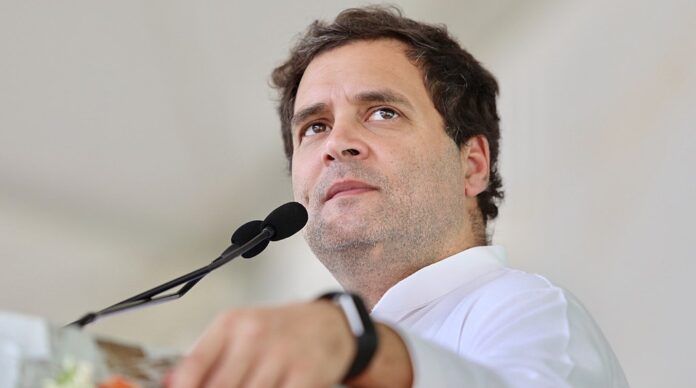Facing Narendra Modi’s formidable BJP, Rahul Gandhi sparks renewed vigour in his campaign efforts, despite challenges
As India gears up for its general election on April 19th, Rahul Gandhi, the scion of the Nehru-Gandhi political dynasty, has dramatically intensified his campaign efforts. Having traversed 6,300 miles across India, Gandhi’s renewed fervour was palpable during his speeches in Maharashtra, where he vehemently criticized Prime Minister Narendra Modi and decried the economic disparities in the country.
Rahul Gandhi’s political journey has been fraught with setbacks, including significant electoral defeats in 2014 and 2019, the latter costing him his seat in the traditional family bastion of Amethi. Following these losses, he resigned as the leader of the Indian National Congress, raising questions about his political tenacity. However, his recent activities suggest a resurgence of commitment, possibly spurred by the urgency of the impending elections and the critical issues at stake.
Embed from Getty ImagesDespite his reinvigorated approach, analysts remain sceptical about his ability to influence the election outcome this year, with Modi’s BJP widely anticipated to maintain power. However, Gandhi’s efforts may still rejuvenate the Congress party’s base and set the stage for a stronger challenge in the 2029 elections.
Rahul Gandhi’s campaign has increasingly focused on issues like unemployment, economic inequality, and the alleged authoritarian tendencies of the Modi administration. His criticisms extend to the perceived plutocracy in India, where he accuses a few wealthy individuals of wielding excessive influence over the country’s politics and economy.
Addressing systemic issues, the Congress party has released a manifesto that emphasizes reducing inequality and supporting the underprivileged. The manifesto promises legal rights to apprenticeship, support prices for farmers, cash transfers to impoverished families, and a comprehensive census of all groups within the Hindu caste system to enhance affirmative action programs.
However, Congress faces significant ideological and organizational challenges. It has struggled to articulate a coherent alternative to the BJP’s blend of Hindu nationalism and developmental promises. Attempts to adopt a “soft Hindutva” strategy have neither appeased traditional Congress supporters nor attracted BJP followers.
The party also grapples with internal discord and a lack of decisive leadership, as evidenced by sporadic public disagreements among senior leaders and a reluctance to rejuvenate its ranks decisively. Rahul Gandhi’s leadership style, which favors intellectual engagement over political manoeuvring, has been both a strength and a weakness, potentially hindering effective party management and broader appeal.
As the election approaches, the Congress party’s ability to present a viable alternative to the BJP hinges on addressing these critical challenges and capitalizing on the groundwork laid by Gandhi’s vigorous campaigning. Whether this will translate into electoral success remains uncertain, but it undeniably marks a pivotal moment in India’s contemporary political narrative.
